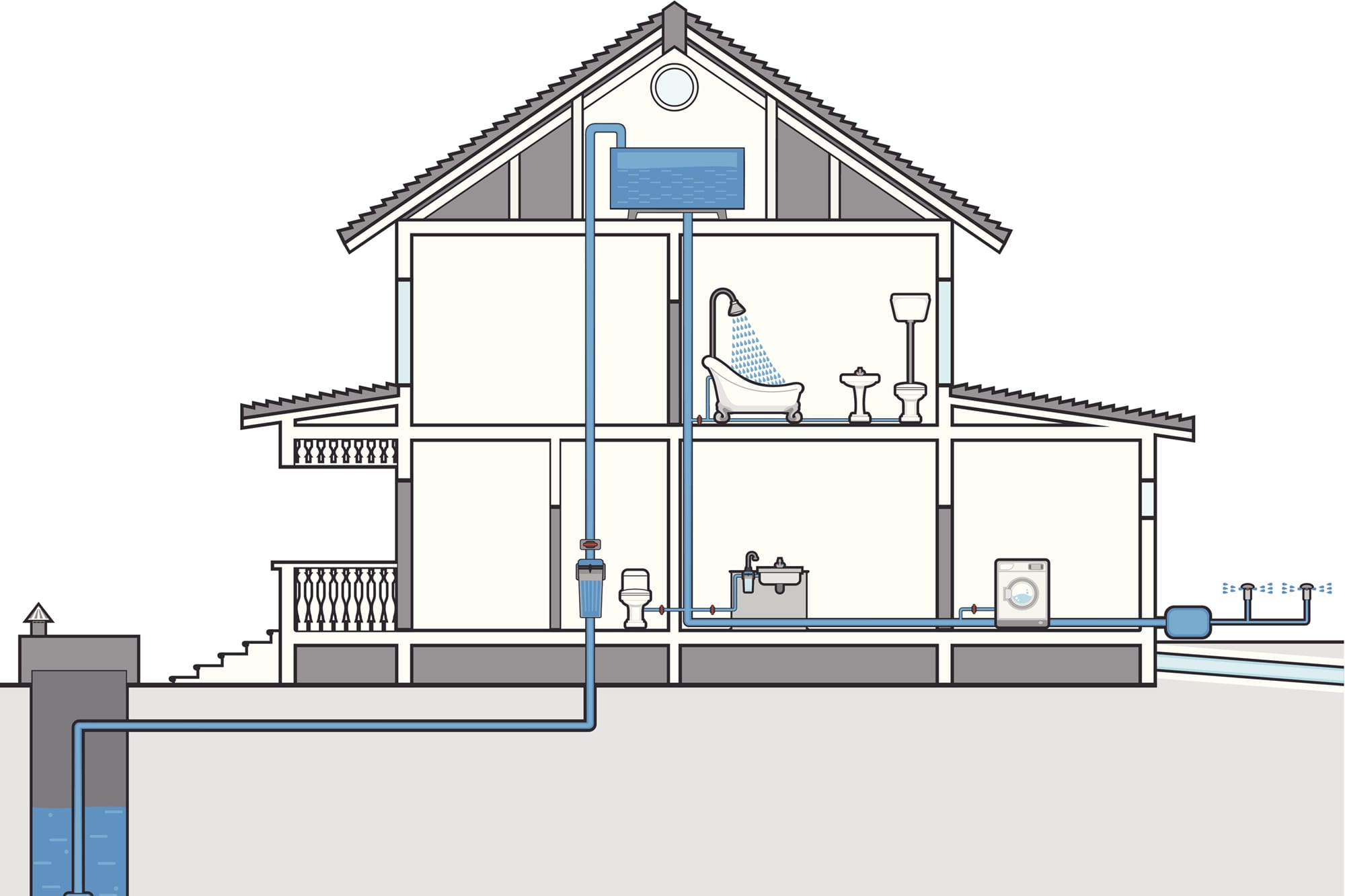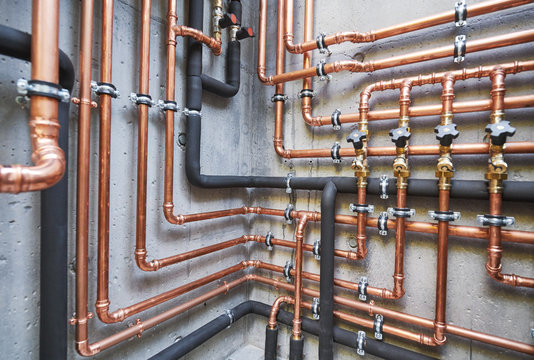How The Anatomy of Your Home's Plumbing System Matters
How The Anatomy of Your Home's Plumbing System Matters
Blog Article
Listed here down the page you will discover a bunch of helpful ideas regarding Anatomy of a House: Understanding the Components.

Comprehending just how your home's plumbing system functions is vital for every single home owner. From providing tidy water for drinking, food preparation, and showering to safely removing wastewater, a properly maintained plumbing system is crucial for your household's wellness and convenience. In this extensive guide, we'll check out the complex network that composes your home's plumbing and deal pointers on maintenance, upgrades, and managing typical issues.
Introduction
Your home's plumbing system is more than just a network of pipelines; it's a complex system that ensures you have accessibility to tidy water and efficient wastewater removal. Understanding its elements and just how they work together can assist you avoid costly repair services and make certain every little thing runs smoothly.
Basic Parts of a Plumbing System
Pipelines and Tubing
At the heart of your plumbing system are the pipelines and tubes that bring water throughout your home. These can be constructed from various products such as copper, PVC, or PEX, each with its advantages in terms of toughness and cost-effectiveness.
Components: Sinks, Toilets, Showers, and so on.
Fixtures like sinks, bathrooms, showers, and bathtubs are where water is made use of in your house. Comprehending how these fixtures connect to the plumbing system assists in diagnosing problems and preparing upgrades.
Valves and Shut-off Points
Valves regulate the circulation of water in your pipes system. Shut-off valves are vital throughout emergency situations or when you require to make repair services, permitting you to separate parts of the system without interrupting water circulation to the whole home.
Water System System
Key Water Line
The primary water line links your home to the metropolitan water supply or a private well. It's where water enters your home and is dispersed to various fixtures.
Water Meter and Stress Regulatory Authority
The water meter measures your water usage, while a pressure regulator guarantees that water moves at a safe stress throughout your home's plumbing system, avoiding damages to pipes and fixtures.
Cold Water vs. Warm water Lines
Recognizing the distinction in between cold water lines, which supply water directly from the primary, and warm water lines, which lug warmed water from the hot water heater, aids in fixing and preparing for upgrades.
Drain System
Drain Pipeline and Traps
Drain pipelines bring wastewater away from sinks, showers, and commodes to the sewer or septic system. Traps prevent drain gases from entering your home and likewise trap particles that might cause obstructions.
Ventilation Pipelines
Ventilation pipes permit air right into the drain system, stopping suction that can reduce drain and trigger traps to vacant. Proper air flow is vital for keeping the stability of your pipes system.
Relevance of Appropriate Water Drainage
Making sure correct drain protects against backups and water damages. On a regular basis cleaning up drains pipes and preserving catches can avoid costly repair services and extend the life of your pipes system.
Water Heating System
Kinds Of Hot Water Heater
Water heaters can be tankless or standard tank-style. Tankless heating systems warmth water on demand, while storage tanks store heated water for instant usage.
Upgrading Your Pipes System
Factors for Upgrading
Updating to water-efficient components or replacing old pipelines can improve water top quality, reduce water costs, and enhance the worth of your home.
Modern Pipes Technologies and Their Advantages
Explore innovations like clever leakage detectors, water-saving commodes, and energy-efficient water heaters that can save cash and lower ecological impact.
Expense Factors To Consider and ROI
Calculate the ahead of time prices versus long-lasting savings when taking into consideration pipes upgrades. Many upgrades spend for themselves through lowered utility costs and less fixings.
How Water Heaters Connect to the Plumbing System
Understanding exactly how hot water heater link to both the cold water supply and warm water circulation lines assists in detecting concerns like not enough hot water or leakages.
Upkeep Tips for Water Heaters
Frequently purging your water heater to remove debris, inspecting the temperature level setups, and checking for leaks can prolong its lifespan and enhance energy effectiveness.
Typical Plumbing Problems
Leakages and Their Reasons
Leaks can happen because of maturing pipes, loose fittings, or high water pressure. Resolving leakages immediately stops water damage and mold growth.
Clogs and Blockages
Blockages in drains and toilets are frequently caused by flushing non-flushable items or an accumulation of oil and hair. Using drain screens and bearing in mind what drops your drains pipes can prevent obstructions.
Indicators of Pipes Troubles to Look For
Low water stress, slow drains pipes, foul odors, or abnormally high water costs are signs of prospective plumbing troubles that need to be addressed promptly.
Pipes Upkeep Tips
Routine Assessments and Checks
Schedule annual pipes evaluations to catch problems early. Try to find indicators of leakages, rust, or mineral build-up in taps and showerheads.
DIY Upkeep Tasks
Easy jobs like cleaning tap aerators, looking for toilet leaks making use of dye tablet computers, or insulating revealed pipes in cold environments can prevent major pipes problems.
When to Call a Professional Plumbing Professional
Know when a pipes issue needs expert knowledge. Trying complicated repair work without correct understanding can bring about more damage and greater repair service costs.
Tips for Lowering Water Usage
Basic habits like dealing with leaks without delay, taking shorter showers, and running complete lots of laundry and meals can preserve water and lower your energy bills.
Eco-Friendly Plumbing Options
Take into consideration lasting plumbing products like bamboo for flooring, which is durable and environment-friendly, or recycled glass for kitchen counters.
Emergency Readiness
Steps to Take Throughout a Plumbing Emergency situation
Know where your shut-off valves are located and exactly how to shut off the water in case of a ruptured pipeline or major leakage.
Relevance of Having Emergency Contacts Handy
Keep call details for local plumbing professionals or emergency situation solutions readily available for quick action throughout a pipes crisis.
Ecological Impact and Preservation
Water-Saving Components and Home Appliances
Mounting low-flow taps, showerheads, and toilets can significantly lower water use without compromising efficiency.
Do It Yourself Emergency Fixes (When Applicable).
Short-lived fixes like making use of air duct tape to spot a dripping pipeline or positioning a container under a leaking faucet can lessen damage up until an expert plumber arrives.
Conclusion.
Comprehending the composition of your home's plumbing system empowers you to preserve it properly, conserving money and time on repair services. By adhering to normal maintenance routines and remaining notified regarding modern plumbing innovations, you can ensure your plumbing system operates efficiently for several years ahead.
The Anatomy of Your Home s Plumbing System
Understanding the anatomy of your home s plumbing system is essential for any homeowner. It not only helps in identifying potential issues but also facilitates effective communication with professionals when repairs or upgrades are needed. Your home s plumbing system is more than just pipes and faucets; it s a complex network that ensures the efficient and hygienic flow of water in and out of your house. In this blog, we ll dissect the crucial components of your home s plumbing system. For those in Antelope Valley, Brock Plumbing is your trusted partner for all your plumbing needs, ensuring your system functions smoothly and efficiently.
Water Supply System
Main Water Line: This is where your home s plumbing system begins. The main water line connects your home to the public water supply or a private well. Pipes and Shut-off Valves: Pipes distribute water throughout your home. Shut-off valves are crucial for controlling the flow of water and making repairs without shutting off the entire system. Drainage System
Drain Pipes: These pipes carry waste and water away from sinks, toilets, and showers. Vents: Vents allow sewer gases to escape and help maintain proper pressure in the drainage pipes, ensuring efficient flow of wastewater. Traps: Every fixture has a trap, a U-shaped pipe that holds water and prevents sewer gases from entering your home. The most common is the P-trap under sinks. Fixtures and Appliances
Fixtures and appliances are the most interacted with parts of your plumbing system. They include sinks, toilets, showers, dishwashers, and washing machines. Each fixture and appliance has its own supply and drainage connection, ensuring they receive clean water and can dispose of wastewater effectively.
Water Heating System
Your water heater is a crucial component, providing hot water to various fixtures and appliances in your home. It can be tank-based or tankless, with each type having its own set of advantages and maintenance requirements. Regular maintenance is essential to ensure efficient operation and extend the lifespan of the unit.
Sump Pump
In areas prone to flooding or with high water tables, a sump pump is an essential part of the plumbing system. It s installed in the lowest part of your basement or crawlspace and pumps out water that accumulates, preventing flooding and protecting your home from water damage.
Septic System
Homes that are not connected to a municipal sewer system have a septic system and an underground wastewater treatment structure. Understanding how to maintain your septic system is crucial to prevent backups, odors, and early system failure.
Conclusion
Your home s plumbing system is a complex and essential network, ensuring the efficient and hygienic flow of water in and out of your property. Understanding its key components helps in maintaining it properly and identifying issues before they escalate into major problems. For residents in Antelope Valley, Brock Plumbing is dedicated to providing top-notch services, ensuring that every part of your plumbing system is in perfect working order. Trust our team of professionals to handle all your plumbing needs, ensuring your home remains comfortable, safe, and well-maintained.
https://brockplumbinganddrains.com/blog/the-anatomy-of-your-homes-plumbing-system/

Do you really like more info about Plumbing Installation 101: All You Need to Know? Try to leave feedback below. We'd be glad to see your opinions about this post. We are looking forward to see you back again in the near future. If you appreciated our post plz be sure to pass it around. Many thanks for your time. Revisit us soon.
Further Details Report this page